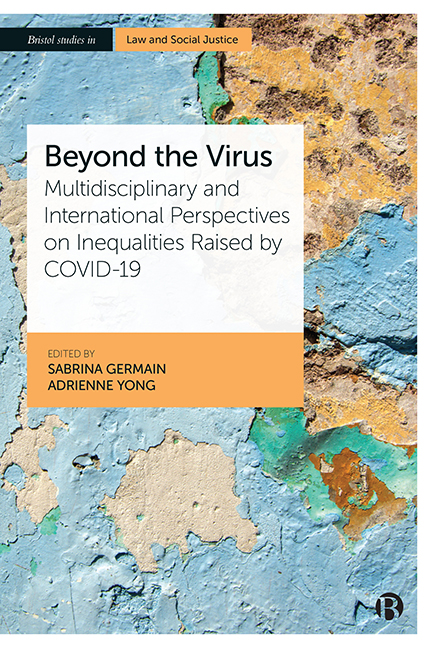 Beyond the Virus
Beyond the Virus 1 - Beyond Liberty: A Republican Perspective on COVID-19 Restrictions and the Politics of Freedom
Published online by Cambridge University Press: 17 January 2024
Summary
On 20 March 2021 thousands of tightly packed protestors marched from Hyde Park to Whitehall in central London. The object of their protest was the government’s ‘lockdown’, encompassing the closing of businesses and places of worship, restrictions on travel and requirements to wear facemasks. These regulations were deemed necessary to contain the spread of COVID-19 and preserve the National Health Service in the face of a ‘second wave’ of infections that began in late 2020. The rallying call for many of these protestors was ‘freedom’; it was on their signs and in their chants (Donnison, 2021). They believe that COVID-19 regulations threaten their liberty. A sentiment echoed by members of parliament like Steven Baker, who, presumably alluding to life in the German Democratic Republic, described these regulations as imposing a ‘checkpoint society, under extreme police powers’ (Parker et al, 2021).
This is not an exclusively British phenomena either: protestors have demanded ‘freedom’ in the streets of Bucharest, Rome, Montreal and across the United States (Dettmer, 2021; Silverman, 2021). Politicians like Jim Jordan, American congressman, berated Anthony Fauci, the face of public health in the United States, over COVID-19 restrictions and demanded to know when Americans will ‘get their freedoms back?’(Brewster, 2021).
This concern about freedom is easy to dismiss. It often seems like cheap rhetoric from far-right politicians and often gets compounded with bizarre conspiracy theories about the pandemic. Liberty has been keeping bad company. However, this doesn’t mean we can dismiss it out of hand. The return of the state has been one of the major stories of the pandemic. Regulations designed to contain the pandemic and preserve healthcare system undeniably interfere with many of the mundane elements of our day-to-day lives. This doesn’t mean that we are living some sort of dystopian ‘checkpoint society’, but perhaps the concern is not prima facie absurd.
This chapter will give a fair hearing to what will be called the ‘libertarian objection’ to COVID-19 regulations. This argument claims that increased government regulations related to the pandemic limit what is permissible for a person to do and therefore has reduced individual liberty.
- Type
- Chapter
- Information
- Beyond the VirusMultidisciplinary and International Perspectives on Inequalities Raised by COVID-19, pp. 17 - 33Publisher: Bristol University PressPrint publication year: 2023
